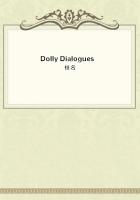MR CALHOUN KIDD was a very young gentleman with a very old face, a face dried up with its own eagerness, framed in blue-black hair and a black butterfly tie. He was the emissary in England of the colossal American daily called the Western Sun-- also humorously described as the "Rising Sunset". This was in allusion to a great journalistic declaration (attributed to Mr Kidd himself) that "he guessed the sun would rise in the west yet, if American citizens did a bit more hustling." Those, however, who mock American journalism from the standpoint of somewhat mellower traditions forget a certain paradox which partly redeems it. For while the journalism of the States permits a pantomimic vulgarity long past anything English, it also shows a real excitement about the most earnest mental problems, of which English papers are innocent, or rather incapable.
The Sun was full of the most solemn matters treated in the most farcical way. William James figured there as well as "Weary Willie," and pragmatists alternated with pugilists in the long procession of its portraits.
Thus, when a very unobtrusive Oxford man named John Boulnois wrote in a very unreadable review called the Natural Philosophy Quarterly a series of articles on alleged weak points in Darwinian evolution, it fluttered no corner of the English papers; though Boulnois's theory (which was that of a comparatively stationary universe visited occasionally by convulsions of change) had some rather faddy fashionableness at Oxford, and got so far as to be named "Catastrophi**". But many American papers seized on the challenge as a great event; and the Sun threw the shadow of Mr Boulnois quite gigantically across its pages.
By the paradox already noted, articles of valuable intelligence and enthusiasm were presented with headlines apparently written by an illiterate maniac, headlines such as "Darwin Chews Dirt;Critic Boulnois says He Jumps the Shocks"--or "Keep Catastrophic, says Thinker Boulnois." And Mr Calhoun Kidd, of the Western Sun, was bidden to take his butterfly tie and lugubrious visage down to the little house outside Oxford where Thinker Boulnois lived in happy ignorance of such a title.
That fated philosopher had consented, in a somewhat dazed manner, to receive the interviewer, and had named the hour of nine that evening.
The last of a summer sunset clung about Cumnor and the low wooded hills; the romantic Yankee was both doubtful of his road and inquisitive about his surroundings; and seeing the door of a genuine feudal old-country inn, The Champion Arms, standing open, he went in to make inquiries.
In the bar parlour he rang the bell, and had to wait some little time for a reply to it. The only other person present was a lean man with close red hair and loose, horsey-looking clothes, who was drinking very bad whisky, but smoking a very good cigar.
The whisky, of course, was the choice brand of The Champion Arms; the cigar he had probably brought with him from London.
Nothing could be more different than his cynical negligence from the dapper dryness of the young American; but something in his pencil and open notebook, and perhaps in the expression of his alert blue eye, caused Kidd to guess, correctly, that he was a brother journalist.
"Could you do me the favour," asked Kidd, with the courtesy of his nation, "of directing me to the Grey Cottage, where Mr Boulnois lives, as I understand?"
"It's a few yards down the road," said the red-haired man, removing his cigar; "I shall be passing it myself in a minute, but I'm going on to Pendragon Park to try and see the fun."
"What is Pendragon Park?" asked Calhoun Kidd.
"Sir Claude Champion's place--haven't you come down for that, too?" asked the other pressman, looking up. "You're a journalist, aren't you?"
"I have come to see Mr Boulnois," said Kidd.
"I've come to see Mrs Boulnois," replied the other.
"But I shan't catch her at home." And he laughed rather unpleasantly.
"Are you interested in Catastrophi**?" asked the wondering Yankee.
"I'm interested in catastrophes; and there are going to be some," replied his companion gloomily. "Mine's a filthy trade, and I never pretend it isn't."
With that he spat on the floor; yet somehow in the very act and instant one could realize that the man had been brought up as a gentleman.
The American pressman considered him with more attention.
His face was pale and dissipated, with the promise of formidable passions yet to be loosed; but it was a clever and sensitive face; his clothes were coarse and careless, but he had a good seal ring on one of his long, thin fingers. His name, which came out in the course of talk, was James Dalroy; he was the son of a bankrupt Irish landlord, and attached to a pink paper which he heartily despised, called Smart Society, in the capacity of reporter and of something painfully like a spy.
Smart Society, I regret to say, felt none of that interest in Boulnois on Darwin which was such a credit to the head and hearts of the Western Sun. Dalroy had come down, it seemed, to snuff up the scent of a scandal which might very well end in the Divorce Court, but which was at present hovering between Grey Cottage and Pendragon Park.













